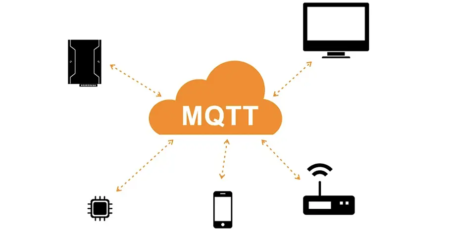The Impact of Blockchain on Digital Advertising: Opportunities and Challenges
Blockchain technology has been making waves in the tech industry in recent years, and its potential applications are far-reaching. One area that has been particularly impacted by blockchain technology is digital advertising. With the rise of ad fraud and concerns over data privacy, blockchain presents a unique opportunity to address these issues and create a more transparent and secure advertising ecosystem. In this blog, we will explore the impact of blockchain on digital advertising, the opportunities it presents, and the challenges that must be addressed.
What is Blockchain?
Before we dive into the impact of blockchain on digital advertising, it’s important to understand what blockchain is. At its core, blockchain is a decentralized, digital ledger that records transactions in a secure and transparent way. Each block in the chain contains a record of transactions, and once a block is added to the chain, it cannot be altered or deleted. This makes blockchain a highly secure and tamper-proof way to record data.
The Impact of Blockchain on Digital Advertising
Blockchain technology presents numerous opportunities for the digital advertising industry, from increased transparency and security to more personalized advertising experiences and improved efficiency. However, there are also several challenges that must be addressed, including adoption, scalability, and regulation.
As the digital advertising industry continues to evolve, it’s clear that blockchain technology will play a key role in shaping its future. While the challenges of adoption and scalability may slow down its integration, the benefits of blockchain in digital advertising are too significant to ignore.
Transparency
One of the biggest impacts that blockchain has on digital advertising is transparency. The current advertising ecosystem is rife with opacity, with advertisers often not knowing where their ads are being placed, and publishers not knowing where their revenue is coming from. Blockchain technology can create a more transparent ecosystem, with every transaction recorded on a decentralized ledger that is accessible to all parties involved.
This transparency can benefit both advertisers and publishers. Advertisers can see exactly where their ads are being placed and whether they are reaching their intended audience, while publishers can ensure that they are being paid fairly for their ad inventory.
Security
Another impact that blockchain has on digital advertising is security. Ad fraud is a major issue in the digital advertising industry, with fraudsters using various methods to generate fake clicks or impressions and siphon off advertising revenue. Blockchain technology can create a more secure ecosystem by verifying every transaction and preventing fraudsters from altering or deleting data.
Personalization
Blockchain technology can also enable more personalized advertising experiences. With consumers’ data stored on a secure, decentralized ledger, advertisers can use this data to create more targeted and relevant ads. This can improve the overall user experience and increase engagement with ads.
Efficiency
Blockchain technology can also improve the efficiency of the digital advertising ecosystem. With every transaction recorded on a decentralized ledger, there is no need for intermediaries to manage transactions, reducing costs and increasing efficiency. This can result in faster transactions and lower fees for both advertisers and publishers.
Challenges of Implementing Blockchain in Digital Advertising
While blockchain presents numerous opportunities for the digital advertising industry, there are also several challenges that must be addressed.
Adoption
One of the biggest challenges facing blockchain in digital advertising is adoption. Blockchain technology is still relatively new, and many companies are hesitant to adopt it due to a lack of understanding or concerns about implementation costs.
Scalability
Another challenge is scalability. The current infrastructure of blockchain technology is not designed to handle the high volume of transactions that occur in the digital advertising ecosystem. This could result in slow transaction times and increased costs.
Regulation
Regulation is another challenge facing blockchain in digital advertising. While blockchain technology can create a more transparent and secure advertising ecosystem, it can also create new regulatory challenges. Governments and regulatory bodies may struggle to keep up with the fast-paced nature of blockchain technology, leading to a lack of clarity around how it should be regulated.
Conclusion
As the technology matures and becomes more widely adopted, we can expect to see greater transparency, security, and personalization in digital advertising, leading to a better experience for both advertisers and consumers.
To successfully implement blockchain in digital advertising, companies will need to work together to create a standardized approach that ensures interoperability and compatibility between different blockchain systems. This will require collaboration and cooperation between advertisers, publishers, and technology providers.
In conclusion, blockchain technology has the potential to revolutionize the digital advertising industry by addressing the issues of transparency, security, and personalization. However, it will require a concerted effort from all stakeholders to overcome the challenges of adoption, scalability, and regulation. As the industry continues to evolve, it’s clear that blockchain will play a key role in shaping its future, and those who embrace this technology will be well-positioned to succeed in the rapidly-changing world of digital advertising.










Leave a Reply